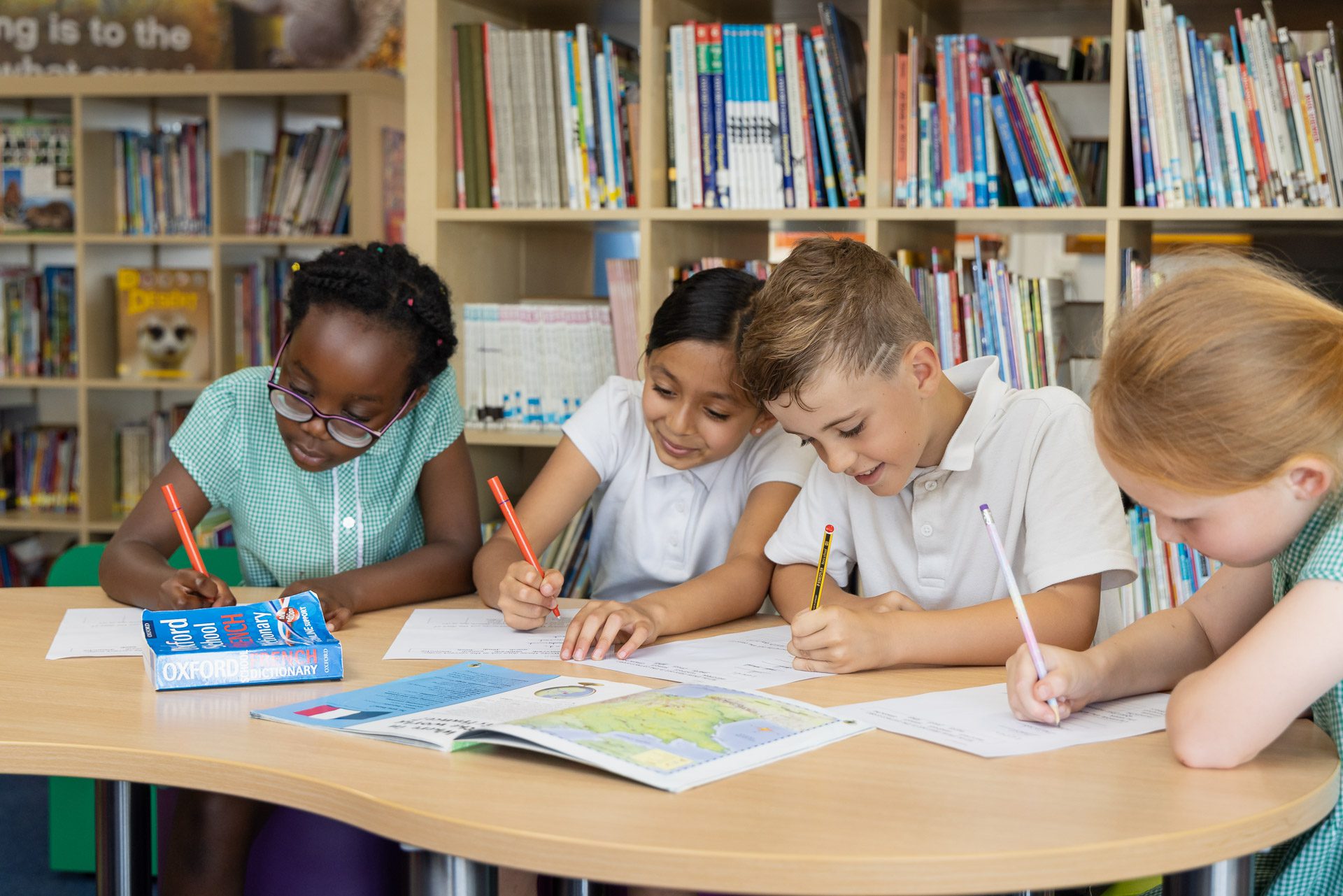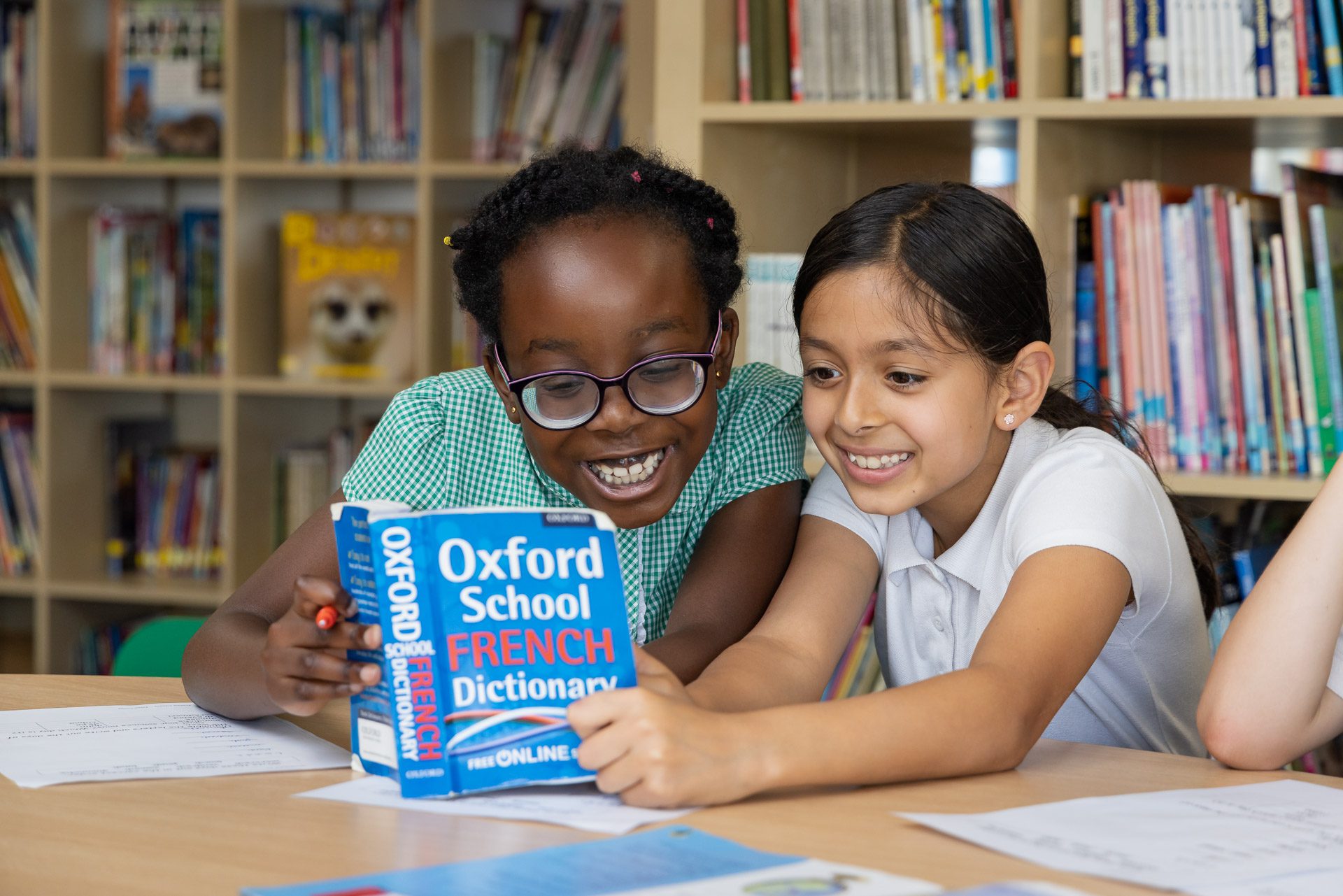Modern Foreign Language Subject Leader: Mrs N Thajeeban
For any more information on Stone St. Mary’s MFL Curriculum, please contact the office.
Learning foreign languages provides children with an opening to other cultures, broadens their horizon, widens their vocabulary as well as prepares them for being a global citizen. Research indicates that people who speak more than one language develop a better memory, talent for problem-solving, ability to concentrate, and tendency to be creative than people who speak only one language.
Intent
At Stone St Mary’s CE Primary School, we aim to provide all our children with high-quality Modern Foreign Languages (MFL) lessons, which develops their love of learning about other languages and cultures and helps provide them with an understanding of the world. We aim to build the children’s ‘cultural capital’ so that they have a knowledge and understanding of the richness and diversity between cultures.
At Stone St Mary’s CE Primary School, we have a plethora of languages that our children use in their everyday lives at home. We acknowledge and celebrate their cultural heritage and provide opportunities for them to impart their knowledge onto others. We wish for all children to feel confident engaging in spoken French, develop skills in reading, listening and writing, and know how important languages will be in their future. We hope that all pupils will develop a genuine interest and curiosity about languages, finding them enjoyable and exciting and show a desire to continue their language learning past KS2. Although our current MFL taught is mainly French, we strive to provide children with opportunities to experience a range of other languages and celebrate the growing diversity of our children and the languages they speak such as Polish, Arabic, Mandarin, Tamil, Spanish, Punjabi, Yoruba, Igbo, Twi, Hindi and Portuguese.


Implementation
We believe that Primary Languages learning embodies our core Christian values of respect as children learn to appreciate other cultures, and our Christian value of community as children become more aware of other communities and learn from them. All faiths have a language linked to them and has always been the means to portray different faiths. In our learning about Christianity, we refer to the languages that the Bible was originally written in-Old Testament-Hebrew, New Testament- Greek and that Jesus spoke Aramaic and the languages linked to the scriptures of other faiths studies in our religious education.
MFL lessons occur weekly. In addition to MFL lessons we have a ‘Language of the term’ which is chosen based on our ‘Country of the term,’ linked to Geography. This provides an opportunity for children to learn basic greetings different countries of the world.
Impact
To become a global citizen, children should be taught to appreciate the differences that are present in our diverse country, and we believe that Primary Languages will contribute to their preparation for this. Every language learnt, broadens the individual’s worldview because you get a deeper sense of not just the language, but also the culture that it comes from and respect for every single language and culture in the world.
Modern Foreign Language in Each Stage
Our MFL curriculum ensures that all children develop key language learning skills set out by the National Curriculum.
Throughout EYFS and KS1, children will be exposed to language learning in the following ways: songs and rhymes, dual language books and greetings (linked to our language of the term) Exposure to a range of languages at this early stage will lay the foundations and instil curiosity and enthusiasm for further language learning in KS2.
All KS2 children have weekly, discrete language lessons in French delivered by teachers. French lessons cover all aspects -speaking, listening, reading, writing and cultural understanding, and progressing these skills and knowledge throughout Key Stage 2. Activities may consist of actions, rhymes, stories, song, drama, grammar focus, video clips, sentence structure, dictionary work, to extend, embed and combine language skills, with a focus on correct pronunciation.
Evidence of lessons taught are captured in children’s French folders (photos, drawings, sentences, captions). These folders move with children from Year 3 to Year 6 so that previous learning is accessible to all. Children will continuously build on their previous knowledge as they progress in their foreign language learning journey through Stone.
Modern Foreign Language Progression
An action plan has been created by the subject lead to monitor targets we wish to implement across the school. The subject leader will also liaise with all staff across year groups to discuss strengths and any emerging needs. The Subject Leader monitors the effectiveness of the language teaching provided throughout the year through learning walks, planning scrutinies and pupil voice. The class teacher monitors the learning and progression made by children during the year.
SEND Information
At Stone St. Mary’s CofE school, we aim for all children including those with special educational needs and those from disadvantaged backgrounds to flourish. Through quality first teaching, use of Kagan strategies and a variety of assessment tools, we ensure that our children with SEND can learn and progress without barriers. Lessons are adapted where appropriate to provide the appropriate level of support and challenge.
Opportunities to celebrate other languages
Opportunities to celebrate other languages include:
- Language of the term which is chosen based on our Country of the term. This provides an opportunity for children to learn basic greetings from different countries around the world.
- European Day of Languages.
- Learning verses to hymns in different languages.
- World Maps displayed highlighting where children and staff are from and what languages spoken by the children in each classroom.
Modern Foreign Language Extra Resources
Further French Help


